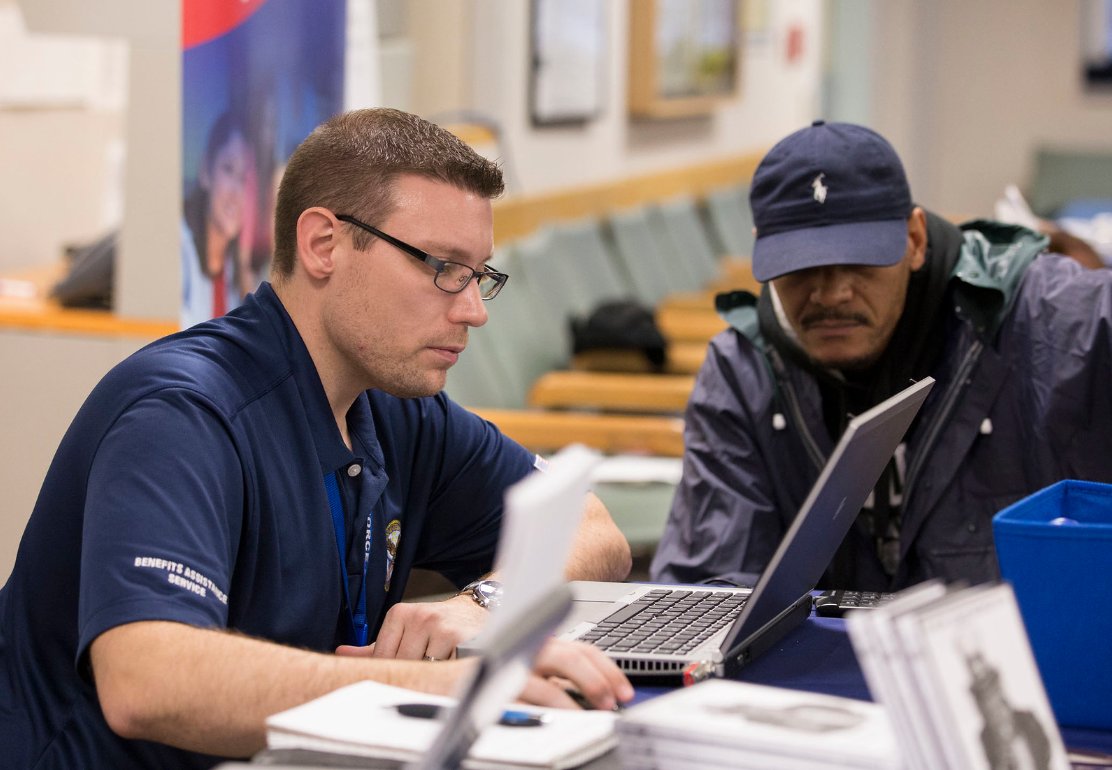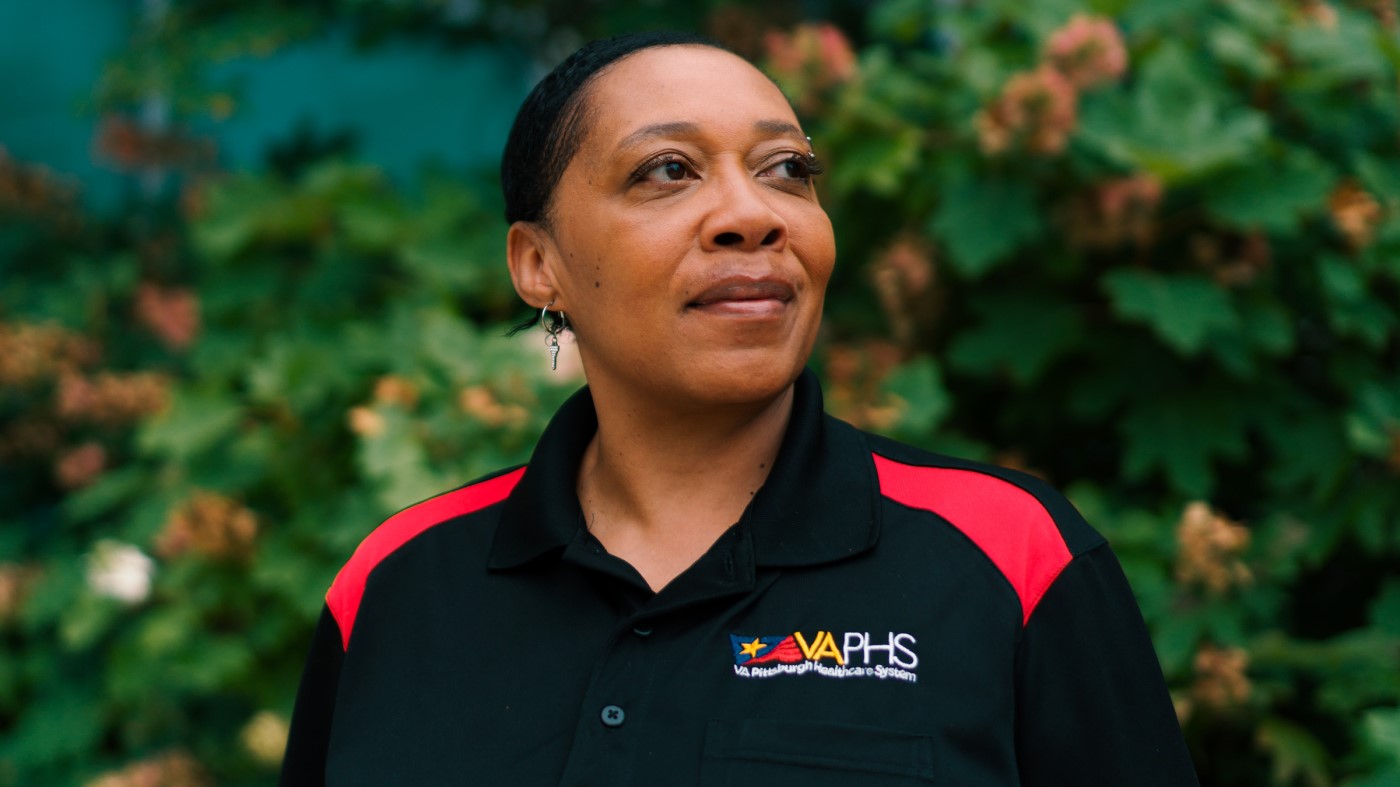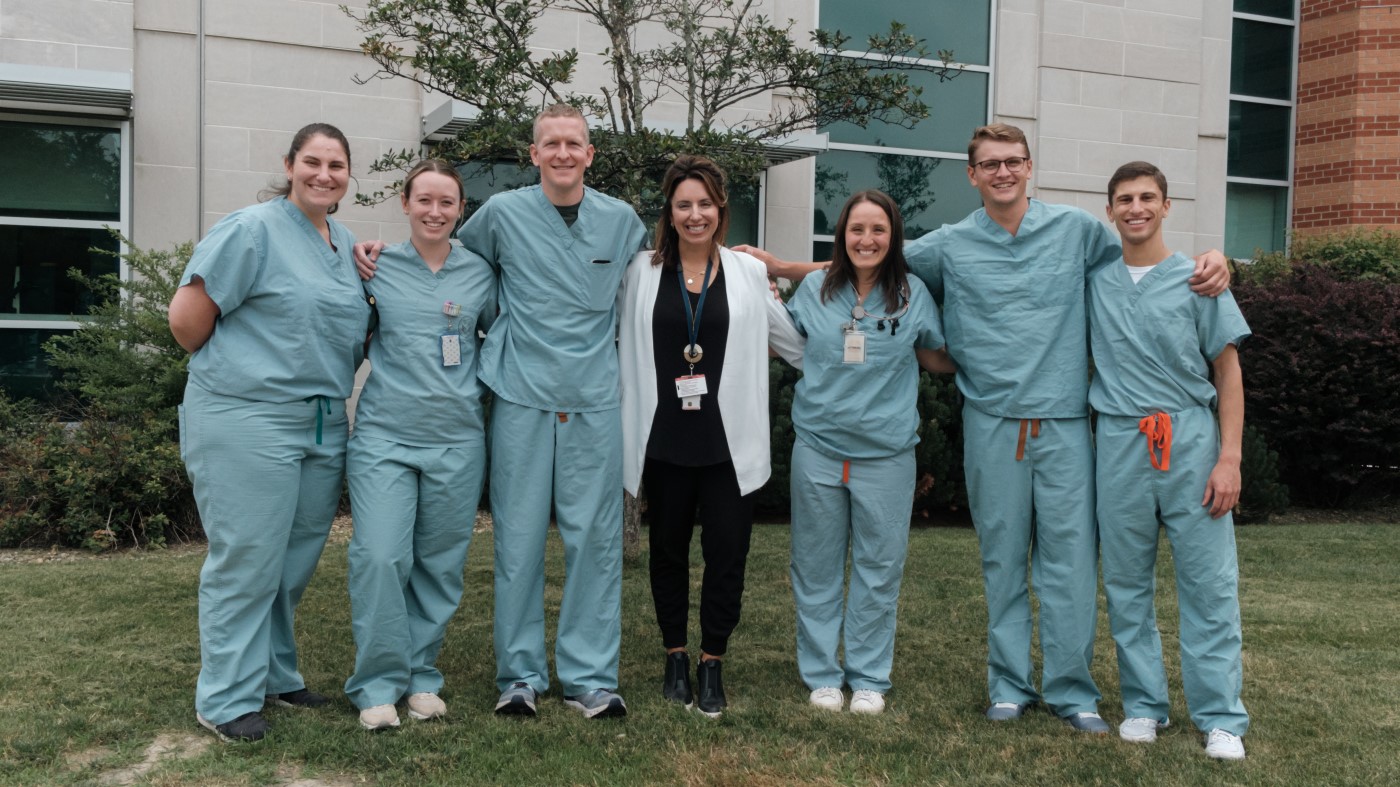Veteran Sheldon Capers was ready for a change. Armed with a Bachelor’s degree in Human Services, he had been receiving services from VA’s Homeless Veterans Community Employment Services (HVCES) through the Jesse Brown Veterans Affairs Medical Center (VAMC) in Chicago. But finding a job was difficult. Then, Linda Lyons, a VA Social Worker, told him about the Veterans School at Work (VSAW) program.
VSAW combines education with career planning to prepare Veterans for successful employment or higher education. VSAW runs for 13 weeks and includes instruction in topics such as Communication in the Workplace, Life Management Skills, and refreshers in grammar, reading, writing and math.
According to Beatrice Smith-Redd, Community Employment Coordinator and VSAW Manager, partnerships with community-based organizations were instrumental in getting VSAW started at Jesse Brown. Donations of laptops from organizations like the Elks National Foundation helped provide computer access for online lessons, and National Able Network provided professional guest speaker and military Veteran Kevin Averyhart who provided guidance on the military to civilian employment transition and interviewing skills.
Internal VA support was also critical to VSAW success. VA personnel like Joy Session, medical support assistant, volunteered to facilitate modules on Medical Terminology for Veterans interested in careers in the healthcare field and Voluntary Services provided snacks and beverages.
VSAW also provided Career Coaching, facilitated by VA Peer Support Specialists, which is adapted to meet each Veteran’s specific needs. For Capers, “The program gave me an opportunity to learn more about life management skills, English, grammar, and mathematics. It also gave me a different perspective about my future. What I learned changed my course of direction and brought me to a place where I was able to help myself in the long run. When I first entered the program, I was looking at human resources employment opportunities. Now, I realize that I’m also interested in social work with Veterans.”
Capers now has an internship at the Jesse Brown VAMC that was created specifically for him to gain valuable experience in the social work field.
Another recent VSAW graduate, Nadine Chest, had a similar positive experience. Like Capers, Chest was referred to the VSAW program by a Medical Support Assistant at the Jesse Brown VA after being unemployed for two years. “I had been a manager at a hospital in Illinois for 15 years,” said Chest, “but I hadn’t been in the workforce for some time. I knew I needed help with my resume and to brush up my job-search skills.”
While enrolled in VSAW, Chest developed new job-search skills and learned how to create a resume and present confidently during job interviews. Shortly after graduating, she was hired by the State of Illinois for a position in the public service field. Six months later, she’s interviewing for a public service administrator role — a step above her current position and plans to enroll in Graduate school.
“VSAW opened my eyes to what’s out there. You can get stuck and forget that you can have anything that you want,” said Chest. “I will be forever grateful for the VSAW program and what it has done for me.”
As for the future of VSAW, Smith-Redd is encouraged by the success of Capers, Chest, and other graduates and wants to make sure Chicago-area Veterans are aware of the program.
More Information
- Find a Community Resource and Referral Center near you that provides access to VA and non-VA benefits.
- Learn more about VA’s programs for homeless Veterans at va.gov/homeless.
- Veterans who are homeless or at imminent risk of becoming homeless should contact their local VA medical center and ask to speak to a homeless coordinator, or call the National Call Center for Homeless Veterans at 877-4AID-VET (877-424-3838).
Beatrice Smith-Redd is a community employment coordinator at the Chicago VA.
Topics in this story
More Stories
Whether it’s access to the great outdoors or a calmer pace in your everyday life, you can find it in rural VA communities around the country.
If you’re looking for an opportunity to provide care to Veterans outside a traditional clinical setting, Home Based Primary Care (HBPC) is a great option.
A key part of your job search is finding the right fit for you and your skills, and workplace culture can impact that dramatically.







After serving as an Air Force pilot in Vietnam and extending my tour of duty twice, to serve in-country for 23 months, I received my honorable discharge. That was 52 years ago last November. During that 52 years, I have not had one real employment opportunity in the United States. While earning my M.S. degree, I earned a small amount of money as a graduate assistant for 12 hours per week for 18 months. The USDA Forest Service was also forced to offer me a job after two of its employees offered me $20,000 they planned to embezzle from agency funds if I would withdraw my employment application so they could hire a much less qualified non-veteran. They later violated the agreement to employ me. I would like the VA to find out from the Department of Labor why I could not get any real job in the United States for 52 years and what the Department of Labor did with all the money Congress was giving it to place returning veterans in employment. I did not starve or freeze to death in the streets like so many of my fellow veterans because I easily found employment as a scientist in Germany and Brazil.
They should let this person run the programs. These are our tax dollars. This is money well spent. Too often we hear about how our Veterans are ignored by the workers at Jesse Brown. That’s what happens when you hire people who dont lool like the people that you are serving and have no compassion. This program shows that at least one person gets it. Thank you!!!!!!
Thank you for your blog-post entitled ‘Formerly homeless Veterans benefit from employment program at Chicago VA’. The article describes the now-too-infrequent, robust combination of re-employment services and veteran-focussed job re-training that has all the potential to really help Vets, and should be adopted as a model for all job-retaining and job-placement. This program has the pieces that will allow it (as a training entity) and its participants (as job seekers) to fully reintegrate their lives into the economic and social lives of the larger City or small-town community. It takes more than one Referral, more than one Training, more than one mentor, to makes all this happen. Again, with the long-awaited re-focus on addressing the national epidemic of Veterans homelessness, the focus is making the remedy possible. Keep up (and expand) that model of intensive, ongoing service, end-to-end, street-to-job-and-home assistance for people to rightly reclaim their civil lives!